Introduction
Dental problems can often cause a great deal of pain to young children and treatment can be very stressful. So, it is very important to avoid or limit dental treatment for children with special needs by keeping teeth healthy. Fortunately, most dental diseases are preventable and this booklet gives parents and carers some simple, practical advice on how to keep their child’s mouth looking and feeling great.
Tooth brushing tips
- If your child requires assistance with brushing you can stand behind them, supporting their head.
- Use a toothbrush with a small head and soft bristles, or an electric toothbrush.
- Brush the teeth twice a day with fluoride toothpaste.
- Your child’s dental professional may recommend a certain toothpaste and/or mouthwash if required.
- A dental professional can provide you with specific advice regarding your child’s individual dental health needs.
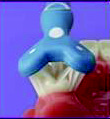 Some ideas for children who do not like having their teeth cleaned:
Some ideas for children who do not like having their teeth cleaned:
- Try using two toothbrushes, one to brush and the other to distract.
- A three sided toothbrush may help to make cleaning easier by cleaning several tooth surfaces at once.
- A bicycle handle grip, or foam tubing placed on the toothbrush handle, or a piece of elastic wrapped around it, may make the brush easier to hold and more stable.
- Try brushing different parts of their mouth at different times.
Two toothbrushes taped back to back can be used to help keep the mouth open.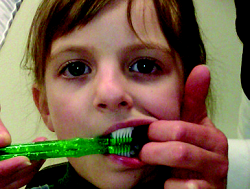 Distraction such as music or TV may help.
Brushing teeth in the bath or shower can be helpful.
Holding onto a vibrating object such as an electric toothbrush may take the focus away from the mouth.
Some children may be responsive to rewards. You might be able to use a tooth brushing chart.
Massage around the mouth and cheeks to improve muscle tone, saliva flow and desensitise the area.
Introduce a small, soft toothbrush gradually to reduce hypersensitivity ready for proper cleaning.
Try play activities that can help mouth functions such as mouth toys, blowing instruments or using a straw.
Distraction such as music or TV may help.
Brushing teeth in the bath or shower can be helpful.
Holding onto a vibrating object such as an electric toothbrush may take the focus away from the mouth.
Some children may be responsive to rewards. You might be able to use a tooth brushing chart.
Massage around the mouth and cheeks to improve muscle tone, saliva flow and desensitise the area.
Introduce a small, soft toothbrush gradually to reduce hypersensitivity ready for proper cleaning.
Try play activities that can help mouth functions such as mouth toys, blowing instruments or using a straw.
Keeping the mouth clean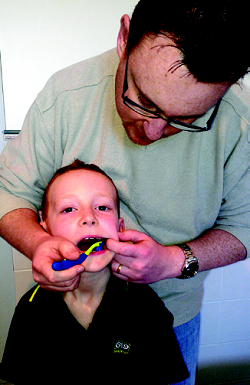
- It is important to make sure your child has their teeth cleaned twice a day with a fluoride toothpaste.
- If your child requires assistance with brushing you can stand behind them, supporting their head.
- Use a toothbrush with a small head and soft bristles, or an electric toothbrush.
- Brush the teeth twice a day with fluoride toothpaste.
- Your child’s dental professional may recommend a certain toothpaste and/or mouthwash if required.
Dealing with gagging or clamping
- Use a foam mouth prop to keep the mouth open while brushing.
- Applying gentle pressure between the chin and the lower lip, can reduce the gag reflex in some cases.
A strong tongue or tight lips
- Massaging the lips and cheek before tooth brushing may relax the child’s lips.
- Some parents find using a clean cloth or handkerchief wrapped around the forefinger useful for gently pulling back the lips.
Children who have difficulty swallowing
- Cleaning children’s teeth who are non-orally fed or have difficulty swallowing (dysphagia) is very important because leaving plaque and bacteria on the teeth can lead to chest infections.
- Brushing the teeth will also make the mouth feel more comfortable and reduce any bad breath.
- To help make brushing easier for your child tilt the head forward while brushing.
- Use a low foaming toothpaste e.g. Colgate My First Toothpaste or Macleans Milk Teeth.
- To increase the flow of saliva during feeding, gently stroke the face and cheek.
Diet and good dental health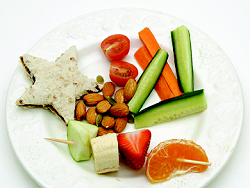
Important advice on how to keep the teeth healthy by reducing the intake of sugary foods:
- Provide meals and planned snacks at set times during the day to prevent ‘grazing’ which can lead to tooth decay.
- Provide safe snacks between meals including fresh fruit, vegetable sticks, cheese and plain yoghurt.
- Reduced fat milk, yoghurt and cheese products are recommended for children 2 years and older.
- Do not allow your child sugary snacks between meals. Foods or drinks containing a lot of sugar include fruit yoghurts, muesli bars, dried fruit and fruit drinks.
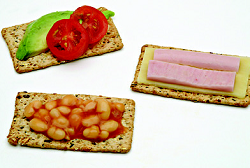
- Only give tap water and plain milk between meals.
- Never allow your child sugary foods or drinks, last thing at night.
- Avoid soft drinks, energy drinks or sports drinks.
- Give dietary supplements at mealtimes where possible.
Dental information
How to prepare your child for the visit?
Dental clinics can be frightening places for children, but they don’t need to be. Discuss the visit with your child in a positive way. It is important that you remain calm, confident and reassuring, and be mindful not to pass any fears you may have onto your child.
What do I need to bring?
- Details of all medications.
- Details (including contact details) of all health professional/specialists your child is currently seeing.
What will happen at the first visit?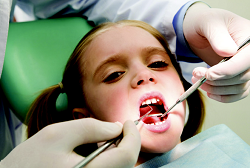
- The dental professional will examine the teeth and may take an x-ray. The medical history will be taken.
- The dental professional will discuss any treatment required and provide tailored diet and oral hygiene advice. Preventive treatments, such as fluoride application, may be offered.
- A parent or legal guardian must attend so consent can be obtained for any treatment. Please feel free to ask the dental staff any questions you may have.
- Please reassure your child that their first visit will be an examination only, however if your child is in pain, emergency treatment may be offered.
Medical conditions and medications
- Some medical conditions may increase your child’s risk of dental disease.
- Certain medications may cause side-effects, such as dry mouth, which can also increase your child’s risk of dental disease.
- Ask your doctor to prescribe sugar free medications.
- Your dental professional can provide you with any specific advice.
- Please advise the dental professional prior to your child’s appointment if they have any specific needs or anxieties e.g. sensitivity to bright lights, touch etc.
Your child’s individual home care plan
Tooth brushing and toothpaste:
Diet:
Other information:
Please call if you have any problems or questions.
Contact telephone numbers for public dental clinics in NSW
| Central Coast |
1300 789 404 |
|---|
| Illawarra Shoalhaven |
1300 369 651 |
|---|
| Hunter New England |
1300 651 625 |
|---|
| Far West |
(02) 6809 8621 or 1300 552 626 |
|---|
| Mid North Coast |
1300 651 625 |
|---|
| Murrumbidgee |
1800 450 046 |
|---|
| Nepean Blue Mountains |
(02) 4734 2387 or 1300 769 221 |
|---|
| Northern NSW |
1300 651 625 |
|---|
| Northern Sydney |
1300 732 503 |
|---|
| South Eastern Sydney |
1300 134 226 |
|---|
| Southern NSW |
1800 450 046 |
|---|
| South Western Sydney |
(02) 9293 3333 |
|---|
| Sydney |
(02) 9293 3333 |
|---|
| Western Sydney |
(02) 8890 6766 |
|---|
| Western NSW |
(02) 6809 8621 or 1300 552 626 |
|---|
Disclaimer
Products mentioned in this booklet are suggestions only and are not endorsed by NSW Health. This resource has been developed by Northern Sydney Local Health District, Oral Health Services. Graphic Design by Mara Cvejic, Westmead Centre for Oral Health. Consents and licences have been obtained for all photographs and artwork used in this booklet.
SHPN: (COHS) 170325
